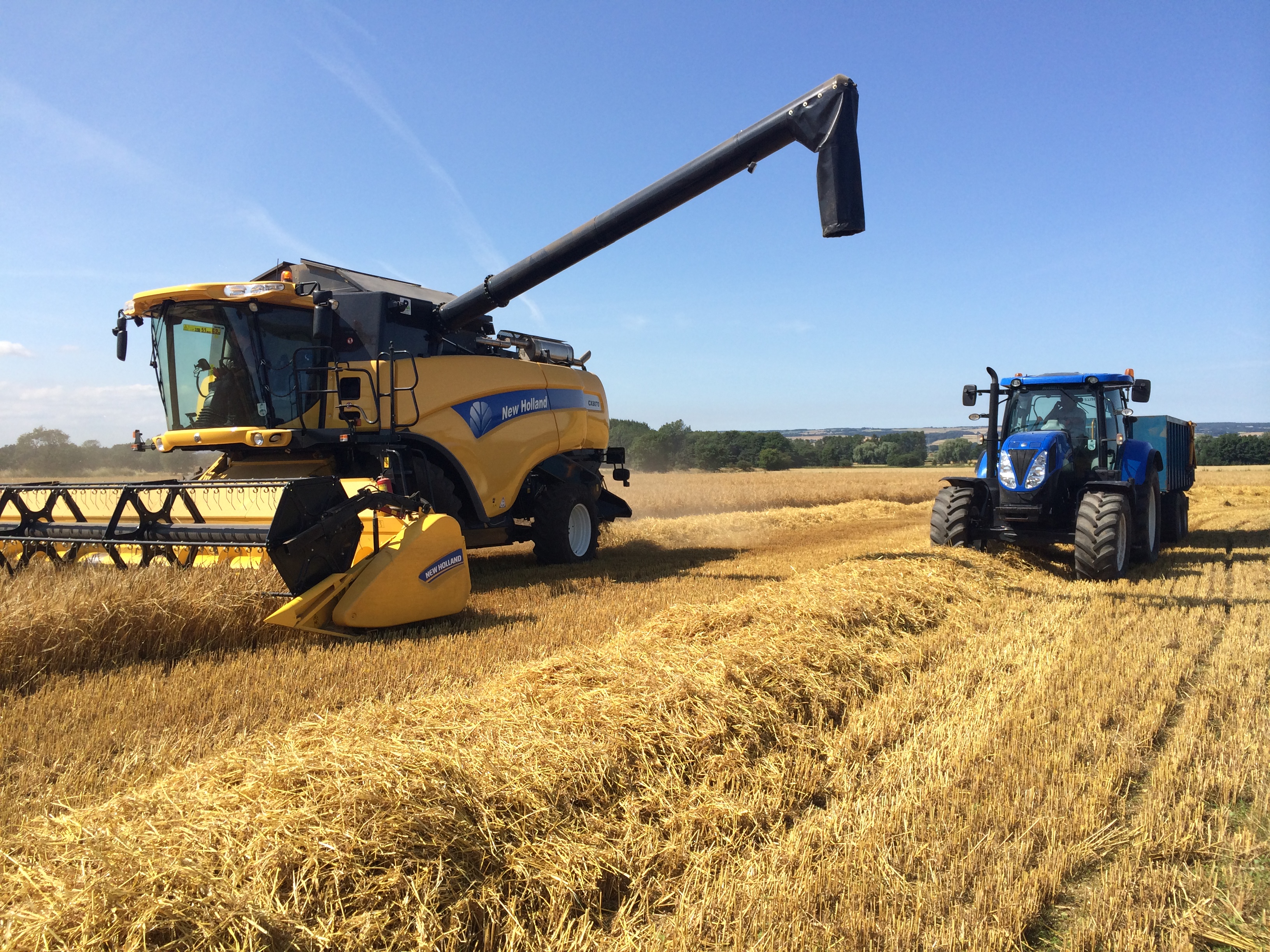Week Beginning Monday 2nd July 2018
Posted by Anderson Grain Marketing on Nov 6, 2018 in AGM News | 0 comments
Combines are rolling in the South of England as Harvest 2018 gets underway – the earliest start for a number of years as the heatwave continues. Online reports have suggested that winter barley harvesting is imminent as far North as Doncaster and some local growers on sand have commented that they could also be into some earlier winter barley by the weekend.
Early reports are mixed but encouraging given the volatile weather that winter barley crops have endured over recent months; it is remarkable to think that we are currently basking in record temperatures just 4 months on from the departure of the infamous “Beast from the East”. Crop quality is also mixed (we are yet to see any samples) – some growers have suggested that crops have ripened too quickly in the dry heat, but others are pleased.
As for winter wheat, the bulk of crops on lighter land are beginning to show signs of stress with significant bleaching and flag leaf curl in places. Heavy land ear counts appear to be slightly on the low side but most Wold land looks exceptionally well. It is no coincidence that high yielding, high bushel weight years coincide with high UV level years – bright skies are exactly what these crops need and we are confident that many growers will be pleasantly surprised come harvest.
Elsewhere, the EU commission has further cut its forecast for 2018 soft wheat production by 2.6 million tonnes from its previous projection at the end of May. Furthermore, the forecast for barley output was down 2.6 million tonnes with OSR production reduced by 0.8 million tonnes.
EU soft wheat production is now pegged as the smallest since 2013, when output totalled 136.2 million tonnes. Barley and OSR crop estimates, if realised, would be the smallest crop harvested since 2012.
Wheat output was reduced for Romania and Bulgaria due to “significantly adverse” weather there, plus there were noticeable reductions for top producers France and Germany.
As for the UK, the commission held its production figure unchanged at 14.3 million tonnes. The barley forecast was however slightly trimmed back from 7.1 million tonnes to 7.0 million tonnes.
AHDB have added that “whilst the reductions were expected, it feeds into the idea of a tighter supply and demand situation for the EU in the now current 2018/2019 trading season. If this is confirmed, we could see some support to European prices”.
Amongst all the general harvest excitement here in the UK, it is easy to forget the all-important US maize crop – he US maize corn crop is forecast to account for 17% of total global grain production this season.
Despite high temperatures throughout June, US maize corn crops are currently in a very good condition. However, the situation is uncertain at the moment as the recent high temperatures are forecast to continue throughout July as crops enter key “yield determining” growth stages. This is known as the “silking stage”; crops are particularly sensitive to drought and heat stress during this time.
Currently (as of Friday), 77% of crops were rated as good or excellent, the highest for this stage in the season for 19 years. This will certainly be something to monitor over the coming weeks; again, it is important to remember that the US maize corn crop alone will account for 17% of overall global grain production this season. The entire UK grain harvest will account for less than 1% this season.
Paris rapeseed futures have risen sharply over the past two days, mainly on the back of high temperatures throughout the EU and subsequently lower output forecasts. However, slightly greater gains were recorded in sterling as the pound hit a three-month low against the euro following “successful” political talks between European leaders regarding migration.
Consequently, harvest values have rallied to somewhere in the region of £295.00/T ex-farm for as available collection. For those of you looking to discuss storage options for the marketing year ahead, please speak with office as soon as possible to discuss your requirements.
